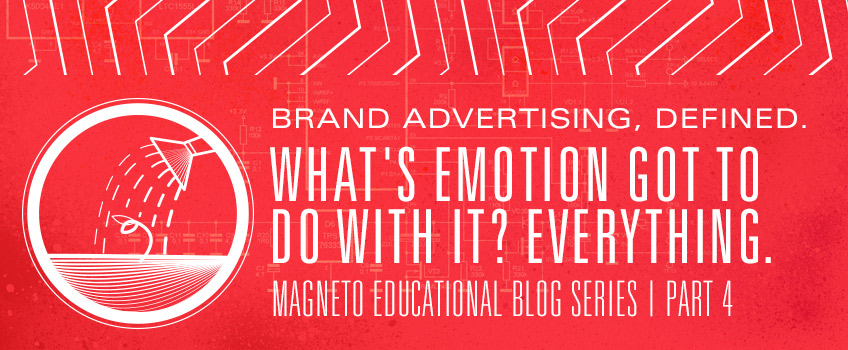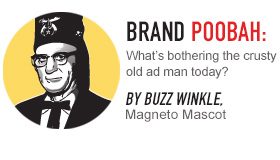If you happened to catch Super Bowl XLIX back in 2015, you probably remember a particularly heartwarming moment in which a lost golden retriever puppy makes his way back to the ranch with the help of his loyal Clydesdale horse pals. The spot lasted all of about 60 seconds, but left few dry eyes in the room. And once the emotional dust had settled you couldn’t help but wonder: Did I really just tear up at a beer commercial?
Fast-forward to another commercial break during the same Super Bowl, and Budweiser is back with a whole new tone. This time, making bold jabs at the rise in popularity of craft beer. If you’re on team microbrew, this one probably felt rather inflammatory; and if you’re all for the golden suds, perhaps you felt affirmed. Either way, you felt something.
Budweiser was playing your emotions like a fiddle that day, and whether you bow to the King of Beers or deplore its anti-craft beer practices, you can’t deny the genius behind its branding strategy. Budweiser has perfected the art of the emotional connection.
Courting Your Core
Your company is more than just a business that makes things or provides a service. It’s a brand, and your brand rests in the mind of your customers. They have an emotional connection with you. They think of you as a trusted friend. Everything you do should reflect and reinforce that connection.
Your engagement with them is your lifeline to growth. Support them, love them, and keep them intrigued with new and interesting ideas. Ask for their feedback; use it to evolve. This is how you attract a genuine following.
Treat your customers like lifelong friends by maintaining and building upon your emotional relationship. If you’re really good at it, some of your followers will become diehards. These are the believers that will evangelize for your brand, the ones in a constant state of anticipation as they await your next offering. They are your core customers, and their loyalty is everything.
Take Nike, for example. You’ve probably heard the phrase “Cult of Nike” at some point or another. And while it may seem a tad extreme, it’s really not all that far off the mark. Nike fanaticism is real, and the number of diehards who refuse to buy athletic apparel from anyone else might surprise you. These people don’t just believe in the products Nike sells, they believe in the idea of Nike and everything it stands for.
The Cult of Nike is not the result of the company emerging into the athletic apparel industry in the right place at the right time. Nike has spent decades building brand loyalty and customer trust. And they’ve done so through intensely on-brand emotional appeals.
Sometimes Nike strums the chords of nostalgia by bringing your favorite players off the court and into its advertisements. Other times it lets you relive the greatest accomplishments in sports history, inspiring awe at what the human body is capable of. Nike speaks to your inner child, encouraging you to be playful and have fun. And perhaps most reliably, Nike is always there to remind you that you too have a propensity for greatness—so long as you Just Do It.
Nike sets a high bar, but you don’t have to be a multinational corporation with an estimated brand value of upwards of $20 billion to make successful emotional connections. Anyone can do it with a little heart and soul.
Plant Seeds, Watch Them Grow
There are lots of ways to form emotional connections with customers, and you will do so successfully if you stay true to your brand. But Rome wasn’t built in a day, and it would be ignorant to assume that your core will flock to your brand overnight. People want to know you’re playing the long game; that you’ll be there to lean on, like a trusted neighbor or a childhood friend. People smell out false promises in a heartbeat, and they have little time or patience for them.
So, ready to cultivate long-lasting, emotional relationships with your customers? These tips will put you on the path to harvest:
- Be loyal to your core. This is about authenticity, and it cannot be overstated. Communicate with your target audience in ways that are honest, straightforward and transparent. Authenticity builds trust, and trust is at the core of positive emotional reactions. Remember when Airwalk decided to sell its skate shoes in malls? That was an affront to everything skater culture stood for, and Airwalk immediately fell out of favor with former loyalists. Be loyal to your core and your core will be loyal to you.
- Listen to your customers. Your followers want to be a part of the conversation, so solicit their feedback and evolve accordingly. Netflix has tracked customer feedback and viewing behavior religiously over the years, and now it is quite literally crafting the ideal streaming service per its loyalists’ desires. Hul-who?
- Demonstrate appreciation for your customers. In the age of ad overload, it’s hard not to approach discounts and freebies with skepticism. Freebies rarely come to you no strings attached. But what about brands that reward their customers with free things just because? It’s a strategy that seems to work well for Ben & Jerry’s. Anyone who has seen the line on free ice cream day can tell you that.
- Be realistic. Know what you do and focus on doing it well. Setting ambitious and expansive goals will harm your brand if you fail to meet your customers’ high expectations. When Steve Jobs came back to Apple, his first order of business was to get back to basics by cutting extraneous projects. Can’t say he didn’t know what he was talking about there.
- Embrace adaptation. Like any relationship, sometimes the emotional bonds you form with customers could use a little spicing up. Don’t be afraid to try something new, even if it’s an entirely different direction. Back in the early 2000s, Pabst Blue Ribbon reached an all-time low in beer sales. Upon discovering its beer was popular with people who despise being marketed to, the 172-year-old macro-brewery decided to take a more hands-off approach. Playing it cool has paid off for the beer giant, with sales of PBR increasing by over 200 percent.
Don’t be intimidated by the prospect of forming connections. Humans are hardwired for emotional bonds. And while we won’t go as far as to say that corporations are people, we will absolutely stand behind the idea that a brand promise is cultivated and maintained through the same level of emotional investment as any important relationship you build.
Share:
Recent Posts
- 9/22/2016 • Magneto Creates M Financial’s 2015 Annual Report
- 8/03/2016 • Magneto aligns Marger Johnson’s look with the industries it serves
- 7/20/2016 • Magneto brings bold vision to City Color branding and website development
- 7/13/2016 • Brand Advertising, Defined: The Creative Process
- 5/25/2016 • Brand Advertising, Defined: Where Science Meets Art



